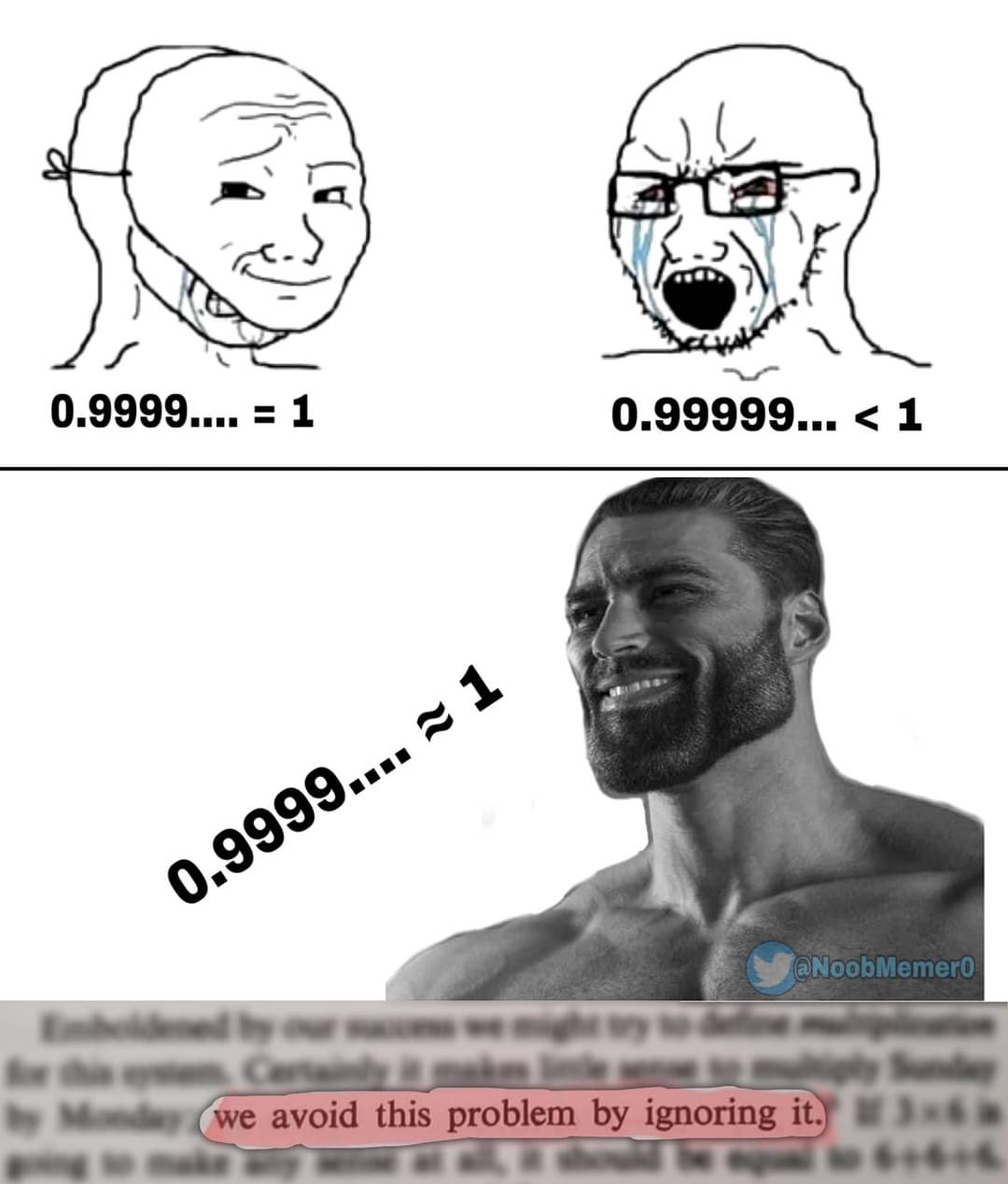this post was submitted on 27 Jun 2024
802 points (95.2% liked)
Science Memes
13182 readers
635 users here now
Welcome to c/science_memes @ Mander.xyz!
A place for majestic STEMLORD peacocking, as well as memes about the realities of working in a lab.

Rules
- Don't throw mud. Behave like an intellectual and remember the human.
- Keep it rooted (on topic).
- No spam.
- Infographics welcome, get schooled.
This is a science community. We use the Dawkins definition of meme.
Research Committee
Other Mander Communities
Science and Research
Biology and Life Sciences
- [email protected]
- [email protected]
- [email protected]
- [email protected]
- [email protected]
- [email protected]
- [email protected]
- [email protected]
- [email protected]
- [email protected]
- [email protected]
- [email protected]
- [email protected]
- [email protected]
- [email protected]
- [email protected]
- [email protected]
- [email protected]
- [email protected]
- [email protected]
- [email protected]
- [email protected]
- [email protected]
- [email protected]
- !reptiles and [email protected]
Physical Sciences
- [email protected]
- [email protected]
- [email protected]
- [email protected]
- [email protected]
- [email protected]
- [email protected]
- [email protected]
- [email protected]
Humanities and Social Sciences
Practical and Applied Sciences
- !exercise-and [email protected]
- [email protected]
- !self [email protected]
- [email protected]
- [email protected]
- [email protected]
Memes
Miscellaneous
founded 2 years ago
MODERATORS
you are viewing a single comment's thread
view the rest of the comments
view the rest of the comments

"Approximately equal" is just a superset of "equal" that also includes values "acceptably close" (using whatever definition you set for acceptable).
Unless you say something like:
a ≈ b ∧ a ≠ b
which implies a is close to b but not exactly equal to b, it's safe to presume that a ≈ b includes the possibility that a = b.
Can I get a citation on this? Because it doesn't pass the sniff test for me. https://en.wikipedia.org/wiki/Approximation
Sure! See ISO-80000-2
Here's a link: https://cdn.standards.iteh.ai/samples/64973/329519100abd447ea0d49747258d1094/ISO-80000-2-2019.pdf
ISO is not a source for mathematical definitions
It's a definition from a well-respected global standards organization. Can you name a source that would provide a more authoritative definition than the ISO?
There's no universally correct definition for what the ≈ symbol means, and if you write a paper or a proof or whatever, you're welcome to define it to mean whatever you want in that context, but citing a professional standards organization seems like a pretty reliable way to find a commonly-accepted and understood definition.
Tbh I'm just impressed you:
A) knew there was an iso standard
iii) posted it in respectful manner, and
e) are correct.
assert np.isClose(3, 3)